Build a dApp on BTTC
This article is a zero-to-one DApp development tutorial, beginning with the deployment of the simplest Hello World contract, progressing through writing the contract and UI interaction to the complete deployment and online process, and culminating with learning to build a decentralized library to learn how to deploy their own DApp on the BTTC blockchain.
Deploy HelloWorld Contract with Remix
Remix is a web-based IDE for writing, compiling, and deploying smart contracts.
If this is your first time using Remix, you must locate and activate the "Solidity compiler" plug-in, as shown in the figure below.
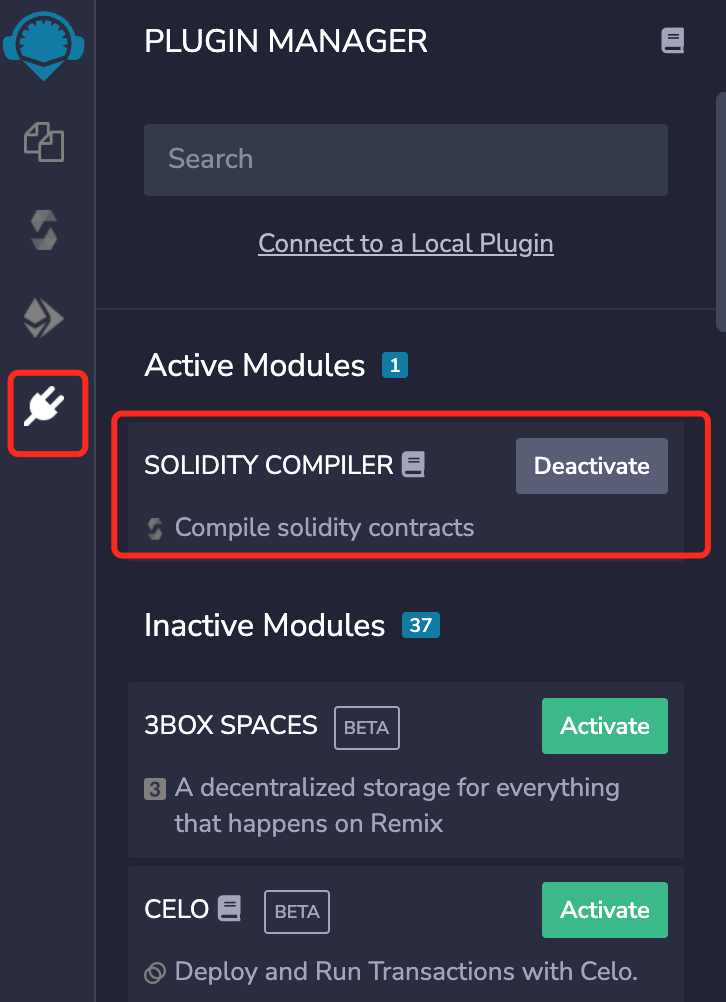
By clicking the button circled in the figure, you can create a new file called HelloWorld.sol and copy and paste the following code into it.
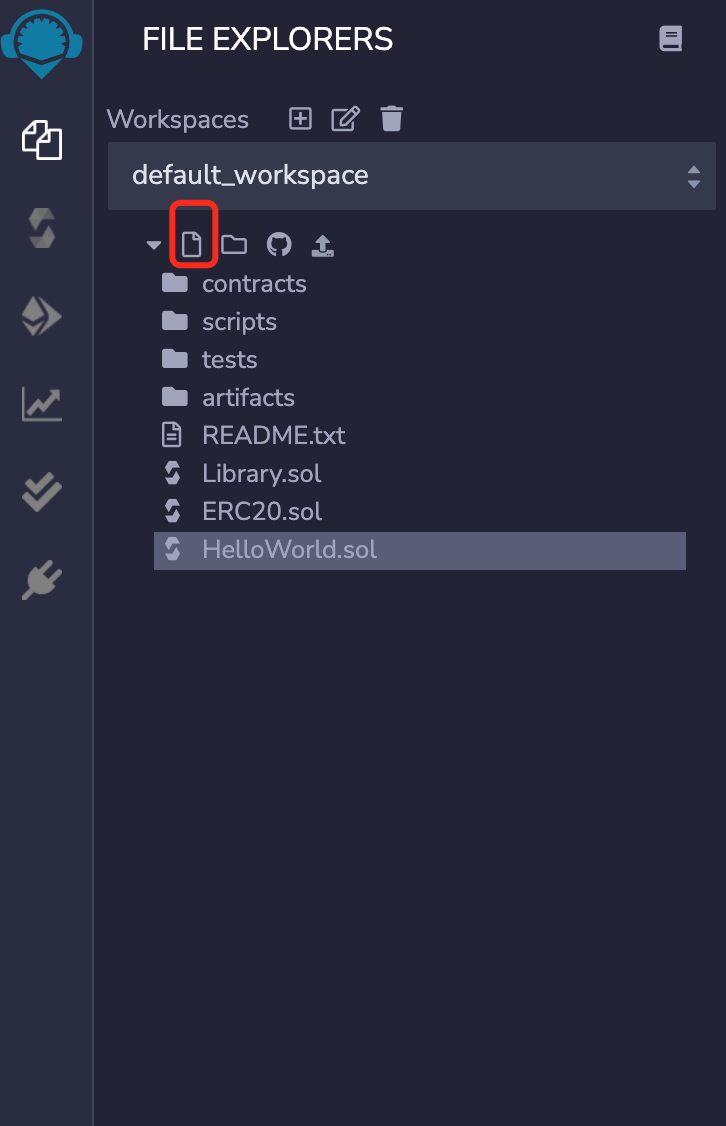
HelloWorld.sol
//SPDX-License-Identifier: GPL-3.0
pragma solidity ^0.8.7;
contract HelloWorld {
string public greeting;
constructor(string memory message) {
greeting = message;
}
function updateGreeting(string memory message) public {
greeting = message;
}
}In the first line, SPDX-License-Identifier: GPL-3.0 specifies that this smart contract is open source and adheres to the GPL3.0 open source agreement. You can also choose from a variety of other open-source licenses based on your specific requirements. When there is not a license, use UNLICENSED.
The second line, pragma solidity ^0.8.7, specifies the compiler's version. This contract can be successfully compiled only with the Solidity compiler version 0.8.7 or higher.
string public greeting declares a public variable named greeting of the string type. This variable is referred to as a state variable, and it will be stored in the contract and on the blockchain in perpetuity. The public keyword enables external access to this variable and creates an accessor function for it.
constructor specifies the contract's constructor. It is capable of receiving a string parameter message, storing it in memory, and assigning the message's value to greeting. Please keep in mind that each smart contract can only contain one constructor, which will be invoked only when the contract is deployed.
function updateGreeting declares an ordinary function that can be called from outside to modify the content of greeting.
Compile the Contract
Select the Solidity compiler on the left, and select version 0.8.7 or higher.
Click Compile HelloWorld.sol. When the compilation is successful, the compiler icon will have a green tick, as shown in the figure.
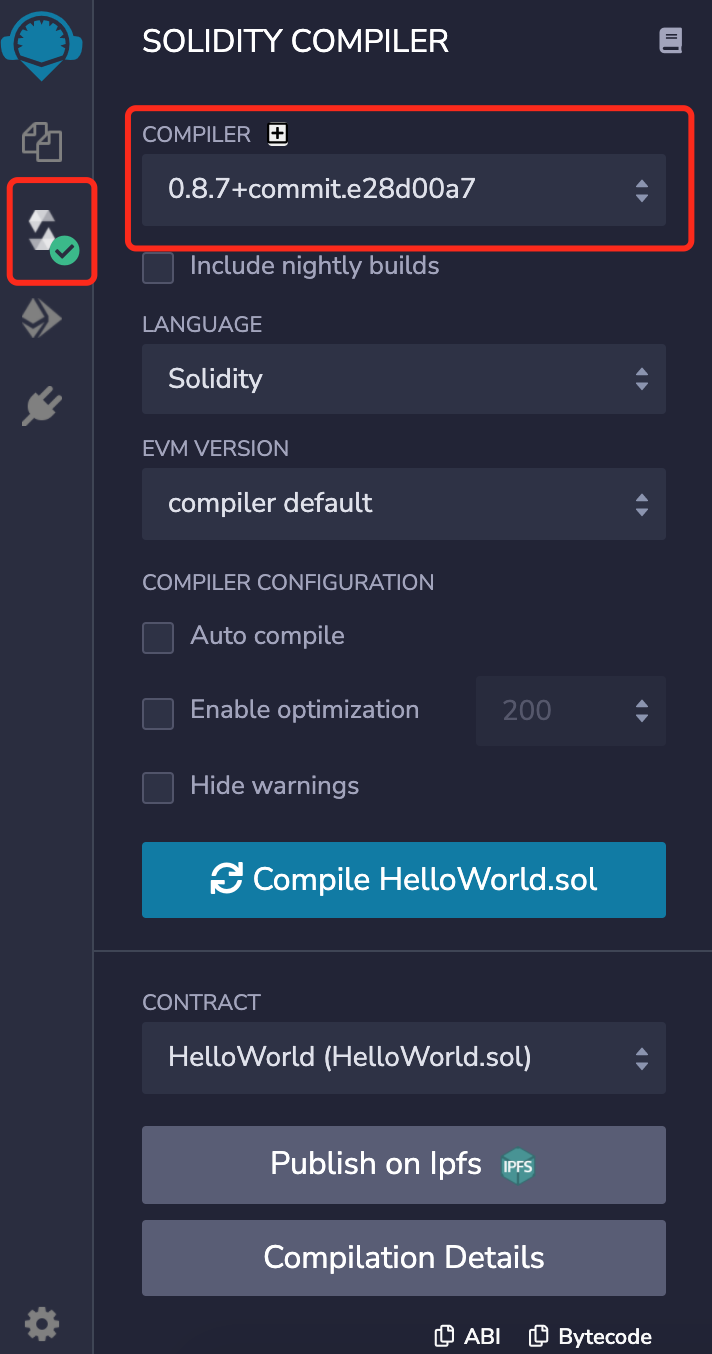
Set up Network
Open the MetaMask wallet and select Custom RPC in the drop-down menu as shown in the figure
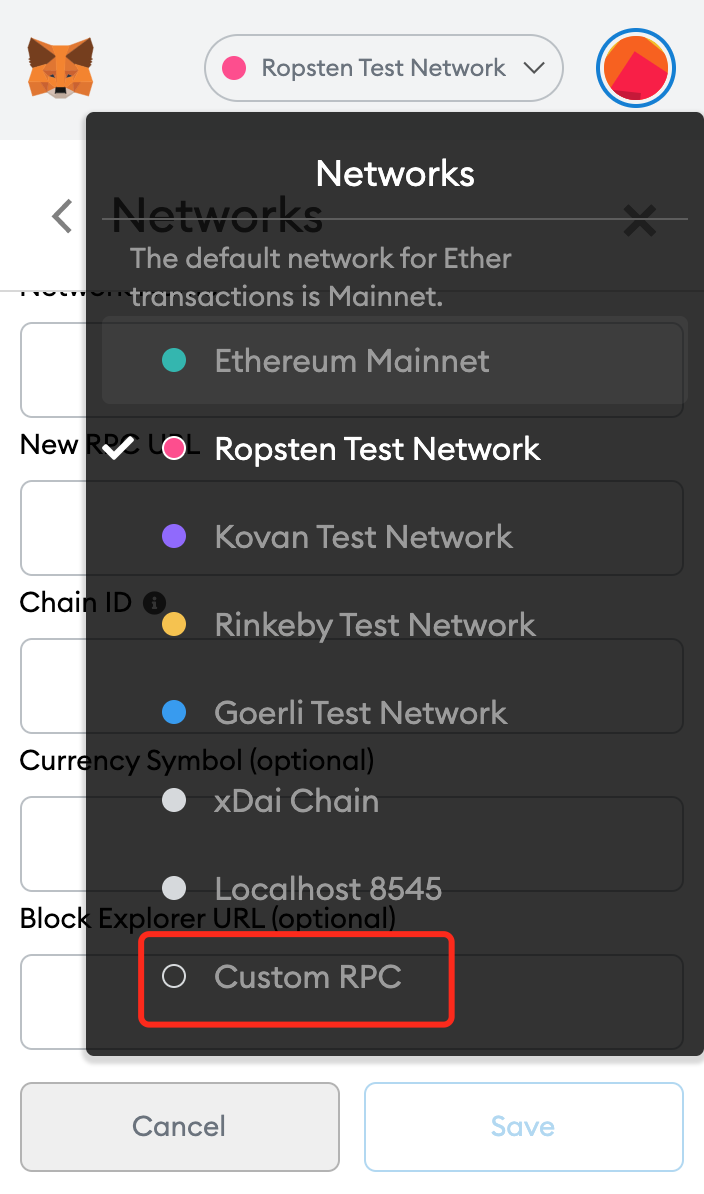
Fill in according to the information in the picture:
- Network Name:BitTorrent-Chain
- RPC URL:http://47.90.133.100:8545
- Chain ID:198
- Currency Symbol:BTT
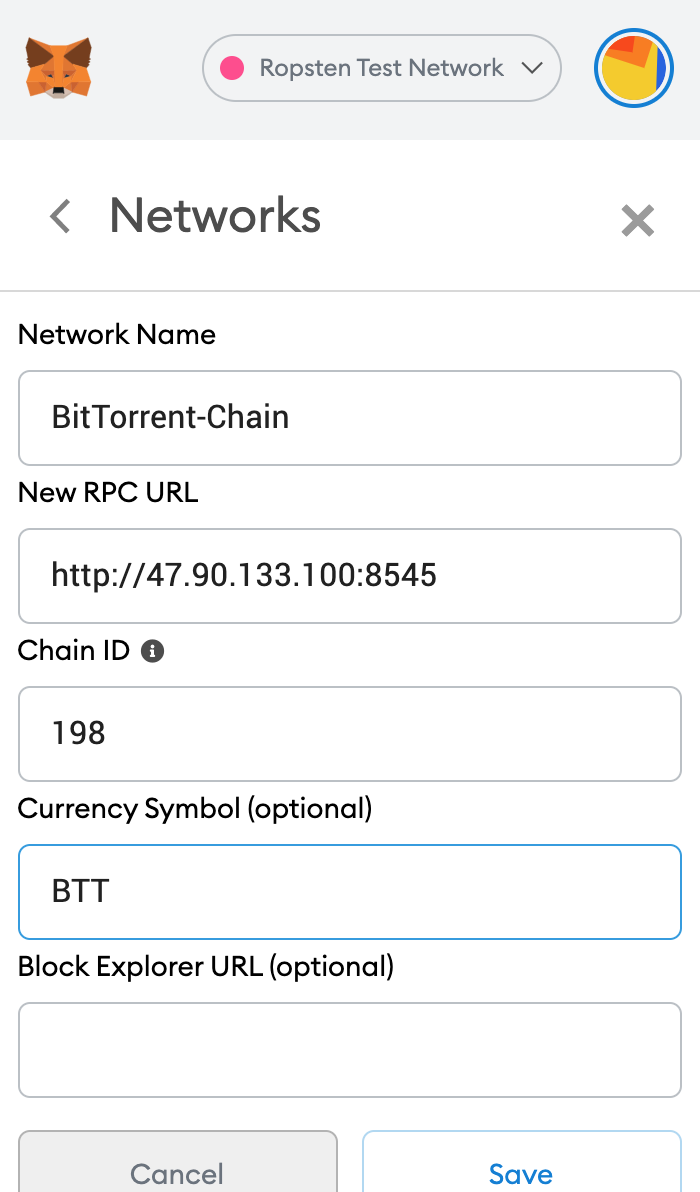
The interface after adding is as shown in the figure below
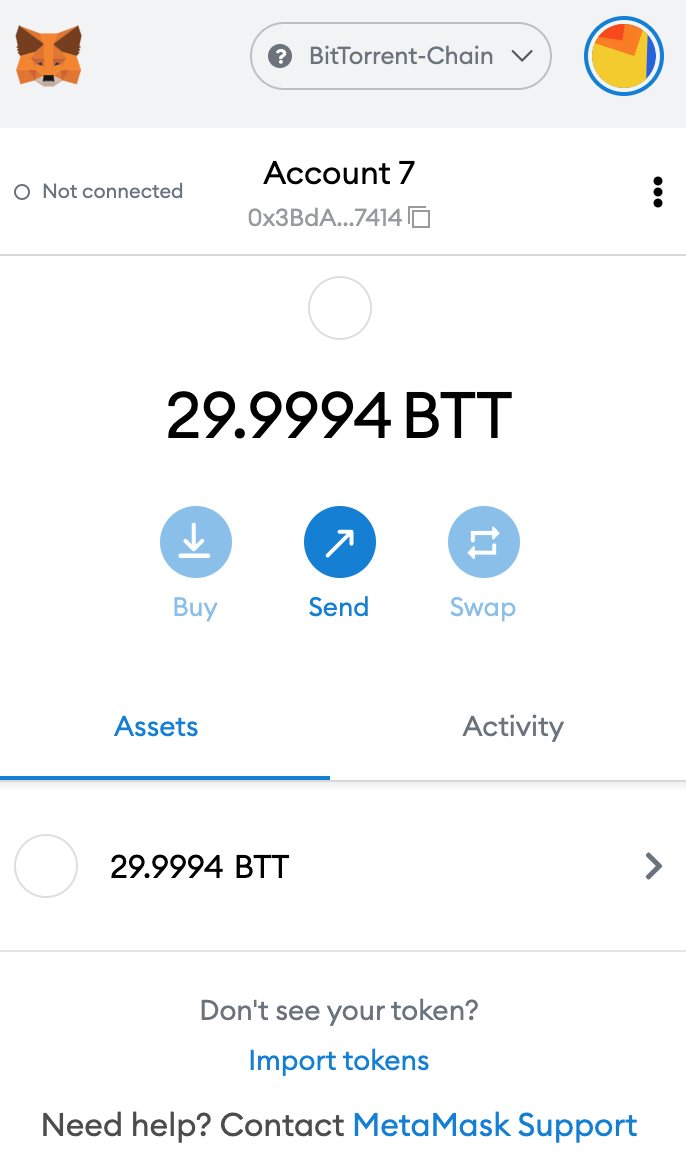
The test account has been pre-funded with some test coins. Kindly visit the faucet to obtain a test BTT.
Once the network configuration is complete, the smart contract can be deployed on BTTC.
Deploy the Contract
First, in the DEPLOY & RUN TRANSACTIONS column of Remix, select Injected Web3 from the Environment drop-down menu
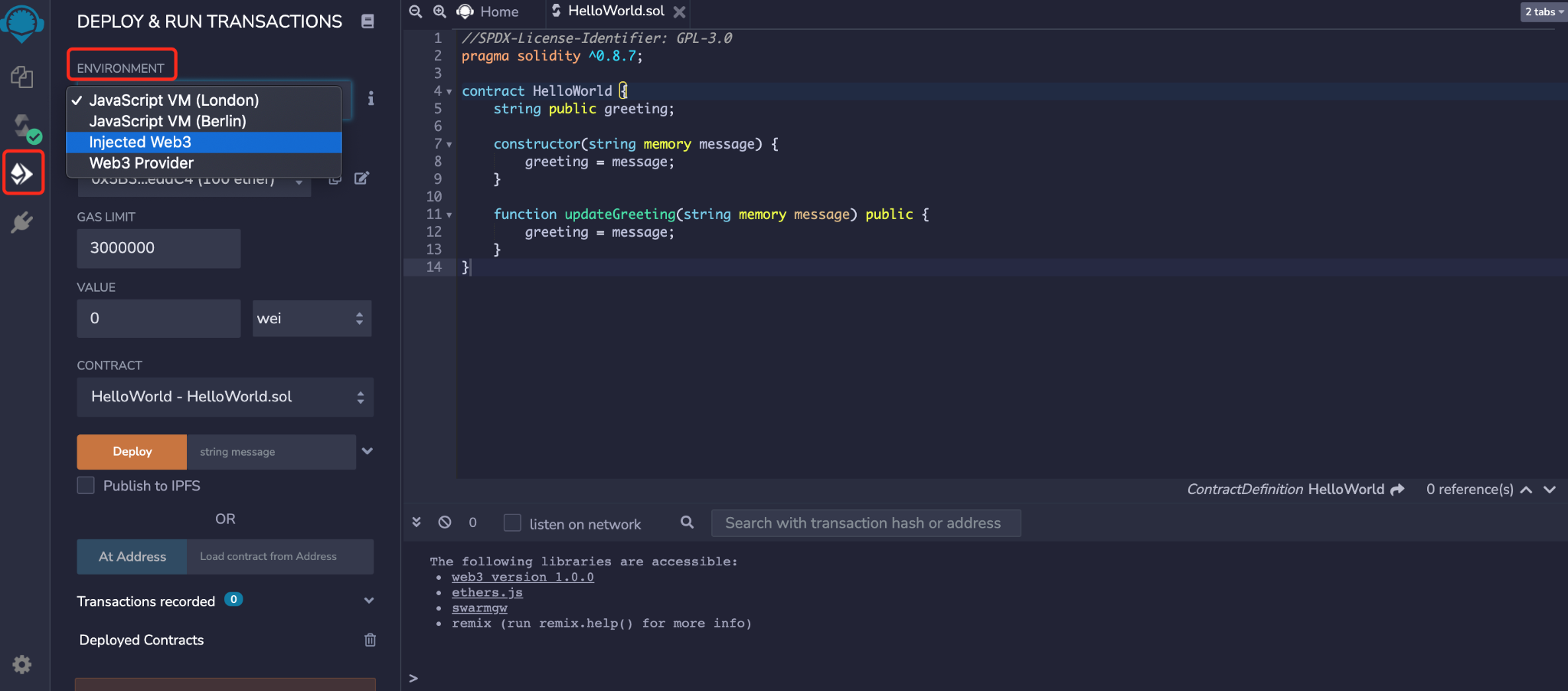
In the input box next to Deploy, enter the initial Greeting content
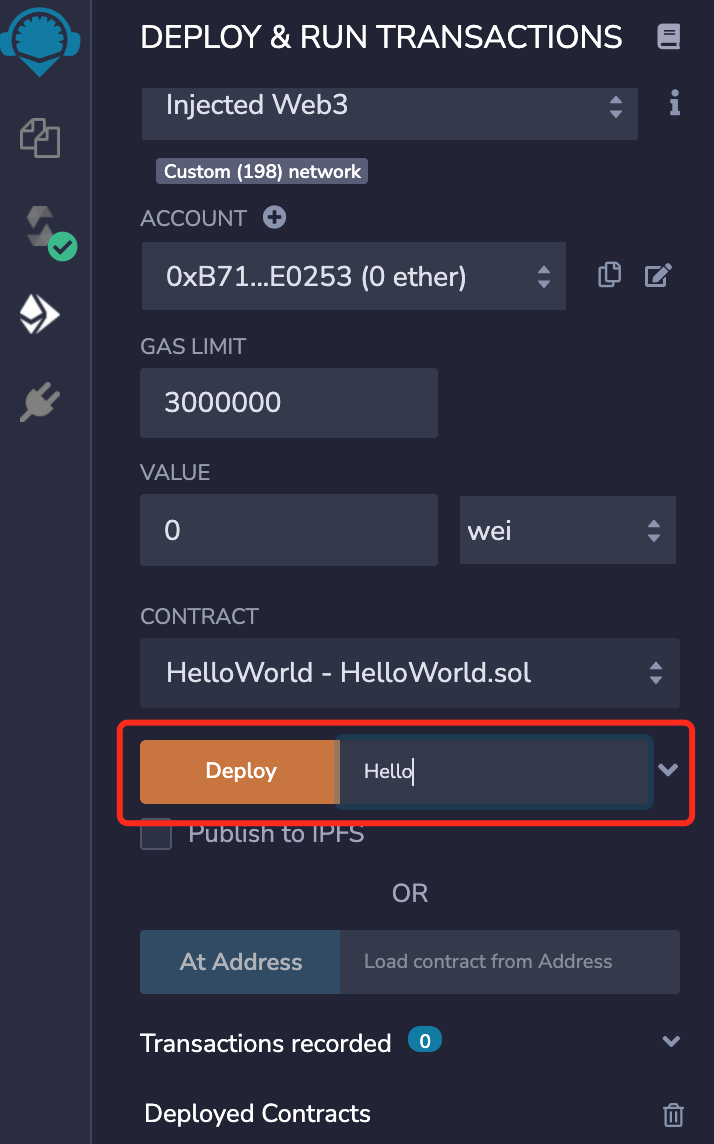
After clicking Deploy, MetaMask will pop up a transaction confirmation window
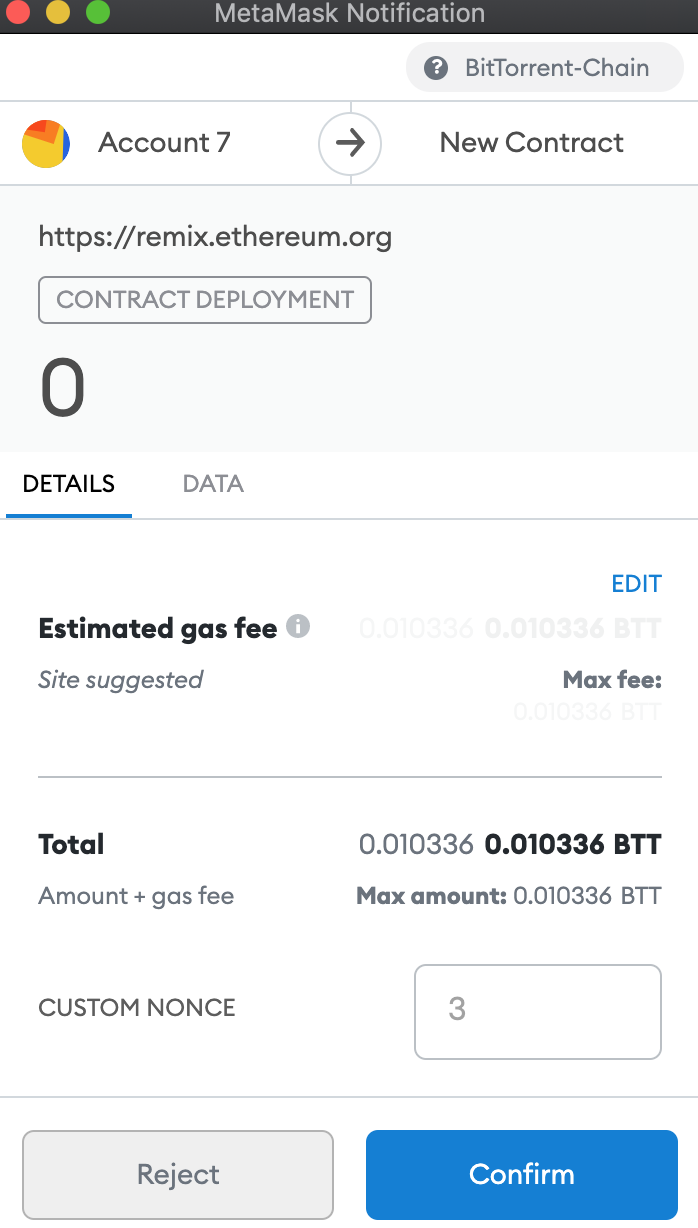
Congratulations! The HelloWorld contract has been successfully deployed to the BTTC testnet. Now you can interact with it and check its status on the explorer.
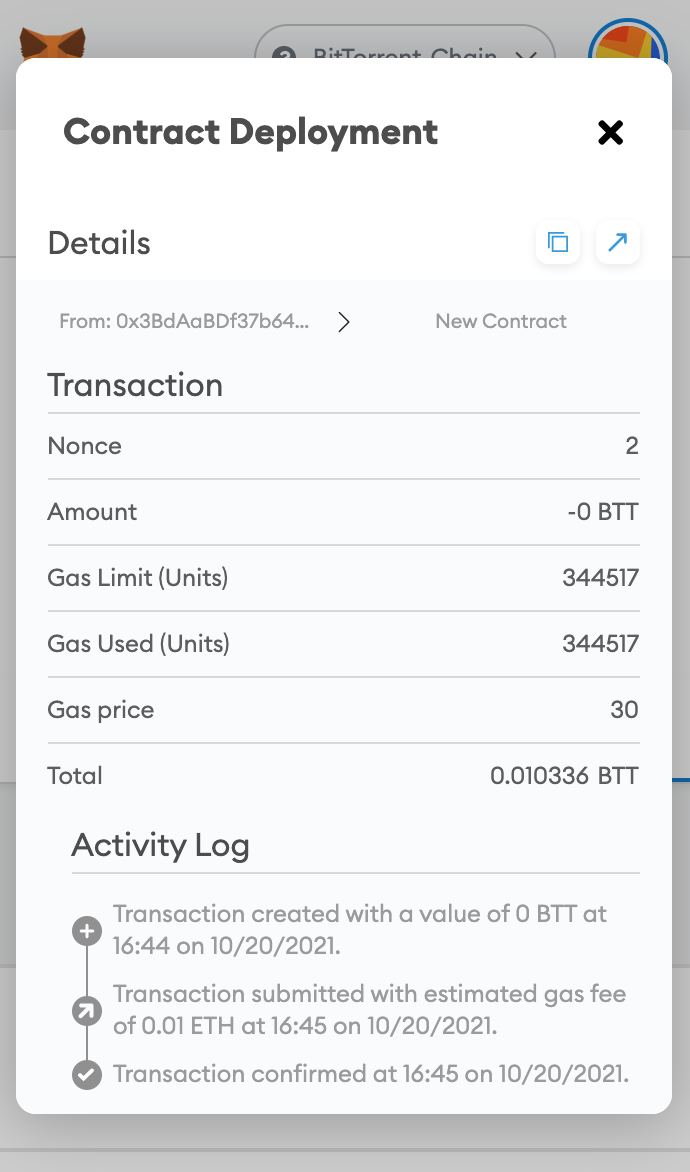
Build a Decentralized Library
Preparations
Install Nodej v10+
# node -v
v10.24.1Install MetaMask
Install the Google Chrome plug-in for Metamask here.
What Are We Doing
We are building a decentralized library that contains the following functions:
- Book borrowing
- Book browsing
- Book adding
Download the complete project code from here, and run npm install to install dependencies.
Data Structure
Typically, borrowers are concerned with the title, content, availability, and price of the book. On this basis, we design a structure in the contract called Book, which comprises the following properties:
struct Book {
string name;
string description;
bool valid; // false if been borrowed
uint256 price; // BTT per day
address owner; // owner of the book
}We hope that the library will be able to have an easy way to find every book. To do this, we build a bookId attribute and a mapping relationship between bookId and Book, named books.
uint256 public bookId;
mapping (uint256 => Book) public books;Additionally, we must keep track of each book's rental information, including the borrower and the start and end dates.
As with Book, construct a structure called Tracking to keep track of this data. This structure possesses the following fields:
struct Tracking {
uint256 bookId;
uint256 startTime; // start time, in timestamp
uint256 endTime; // end time, in timestamp
address borrower; // borrower's address
}Similarly, a mapping relationship must be established to manage each rental record:
uint256 public trackingId;
mapping(uint256 => Tracking) public trackings;Functions and Events
We are adding fundamental functions to our library, including:
- Add a book to the library -
addBook - Borrow a book -
borrowBook - Remove a book from the library -
deleteBook
addBook
/**
* @dev Add a Book with predefined `name`, `description` and `price`
* to the library.
*
* Returns a boolean value indicating whether the operation succeeded.
*
* Emits a {NewBook} event.
*/
function addBook(string memory name, string memory description, uint256 price) public returns (bool) {
Book memory book = Book(name, description, true, price, _msgSender());
books[bookId] = book;
emit NewBook(bookId++);
return true;
}
/**
* @dev Emitted when a new book is added to the library.
* Note bookId starts from 0.
*/
event NewBook(uint256 bookId);borrowBook
/**
* @dev Borrow a book has `_bookId`. The rental period starts from
* `startTime` ends with `endTime`.
*
* Returns a boolean value indicating whether the operation succeeded.
*
* Emits a `NewRental` event.
*/
function borrowBook(uint256 _bookId, uint256 startTime, uint256 endTime) public payable returns(bool) {
Book storage book = books[_bookId];
require(book.valid == true, "The book is currently on loan");
require(_msgValue() == book.price * _days(startTime, endTime), "Incorrect fund sent.");
_sendBTT(book.owner, _msgValue());
_createTracking(_bookId, startTime, endTime);
emit NewRental(_bookId, trackingId++);
}deleteBook
/**
* @dev Delete a book from the library. Only the book's owner or the
* library's owner is authorised for this operation.
*
* Returns a boolean value indicating whether the operation succeeded.
*
* Emits a `DeleteBook` event.
*/
function deleteBook(uint256 _bookId) public returns(bool) {
require(_msgSender() == books[_bookId].owner || isOwner(),
"You are not authorised to delete this book.");
delete books[_bookId];
emit DeleteBook(_bookId);
return true;
}We use two tool methods in the borrowBook method: _sendBTT and _createTracking. We do not wish for users to invoke these APIs. As a result, in accordance with Solidity's standards, we identify them as internal, which means they can be accessed only within the contract.
_sendBTT
/**
* @dev Send BTT to the book's owner.
*/
function _sendBTT(address receiver, uint256 value) internal {
payable(address(uint160(receiver))).transfer(value);
}_createTracking
/**
* @dev Create a new rental tracking.
*/
function _createTracking(uint256 _bookId, uint256 startTime, uint256 endTime) internal {
trackings[trackingId] = Tracking(_bookId, startTime, endTime, _msgSender());
Book storage book = books[_bookId];
book.valid = false;
}The contract is done, it’s time to deploy it.
Deployment and Testing
We compile and deploy contracts using Remix. The deployment contract needs to burn BTT to pay for gas. You can get the BTT test coin here
Open the MetaMask wallet and select Custom RPC in the drop-down menu as shown in the figure
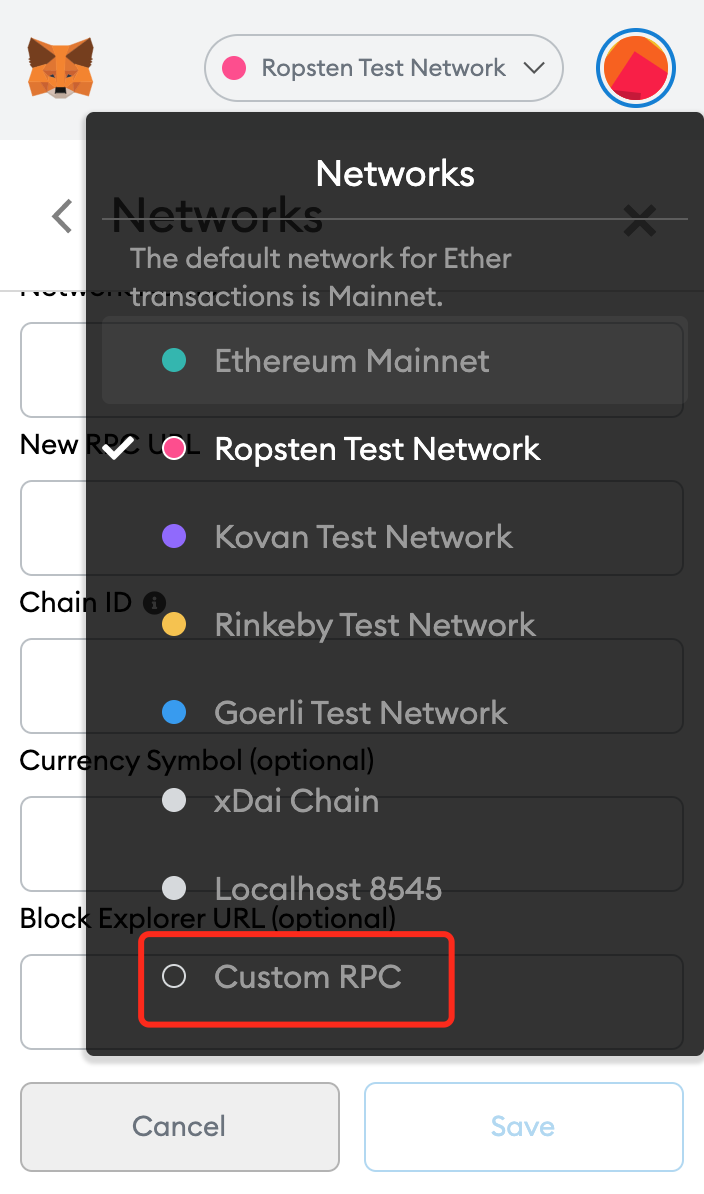
Fill in according to the information in the picture:
- Network Name:BitTorrent-Chain
- RPC URL:http://47.90.133.100:8545
- Chain ID:198
- Currency Symbol:BTT
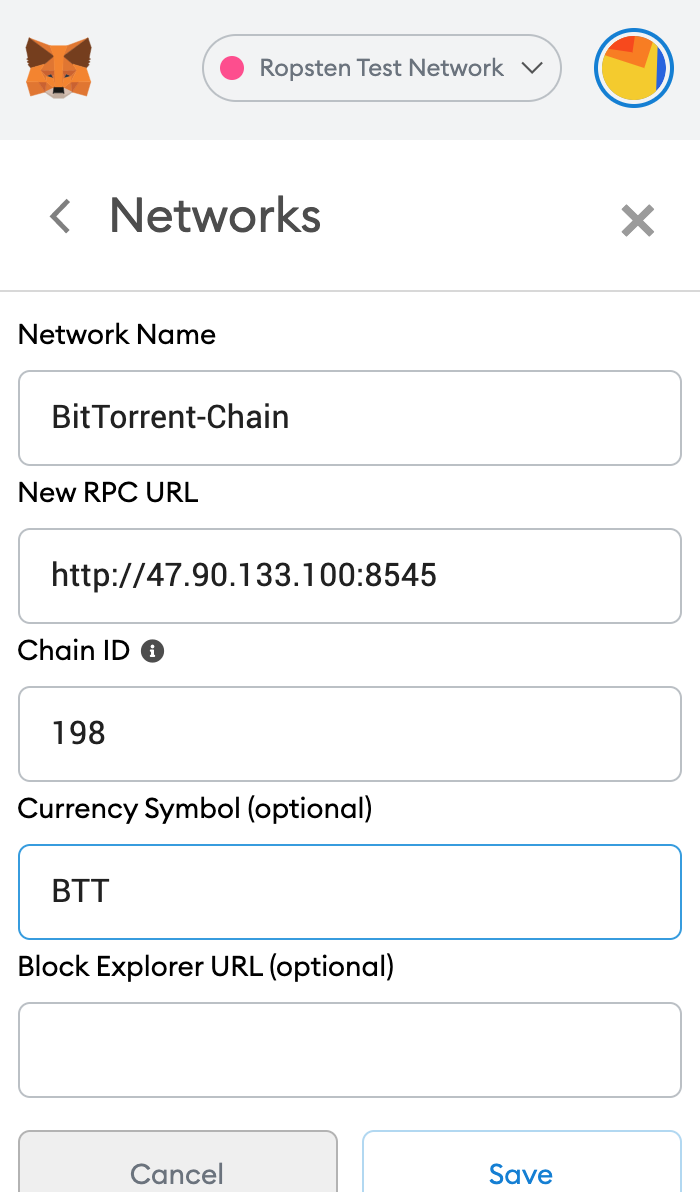
In the DEPLOY & RUN TRANSACTIONS column of Remix, select Injected Web3 from the Environment drop-down menu
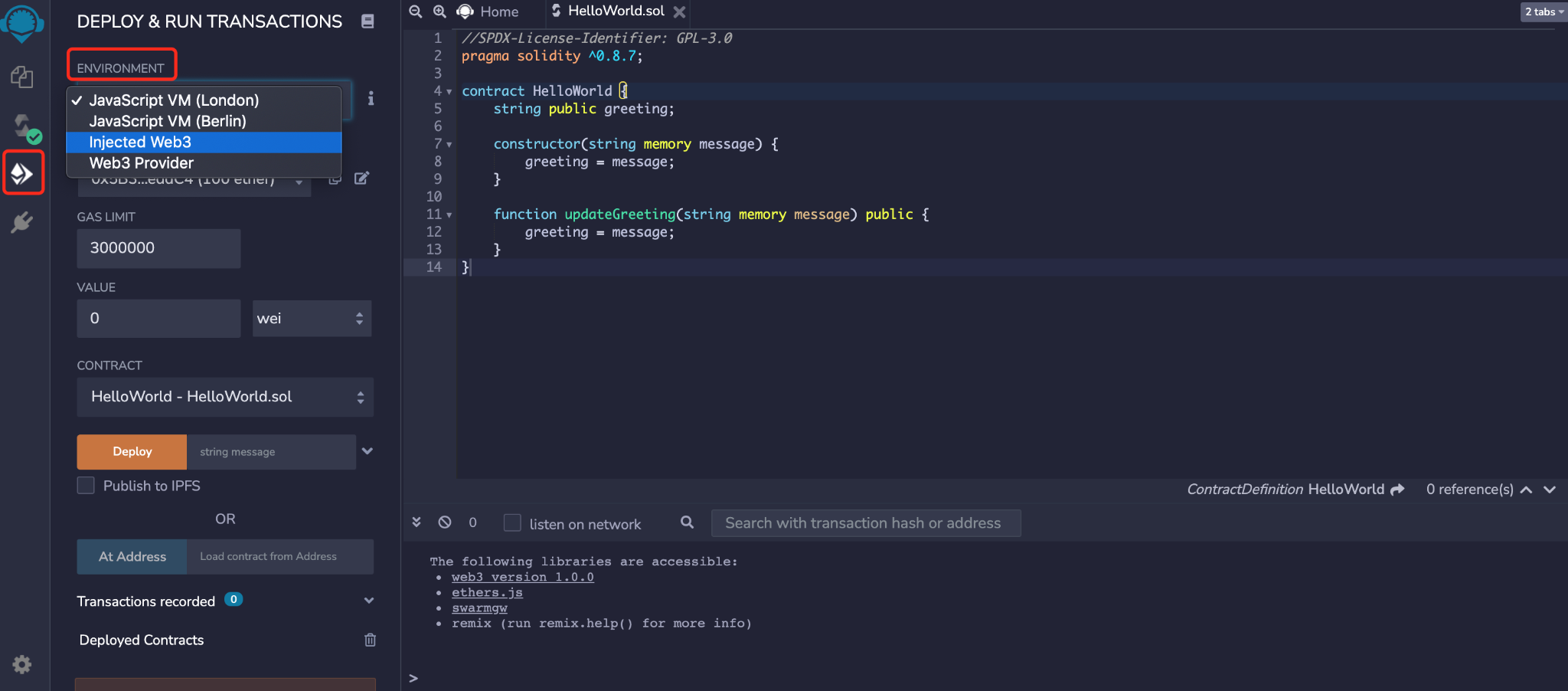
Choose a compiler of 0.8.0 or higher
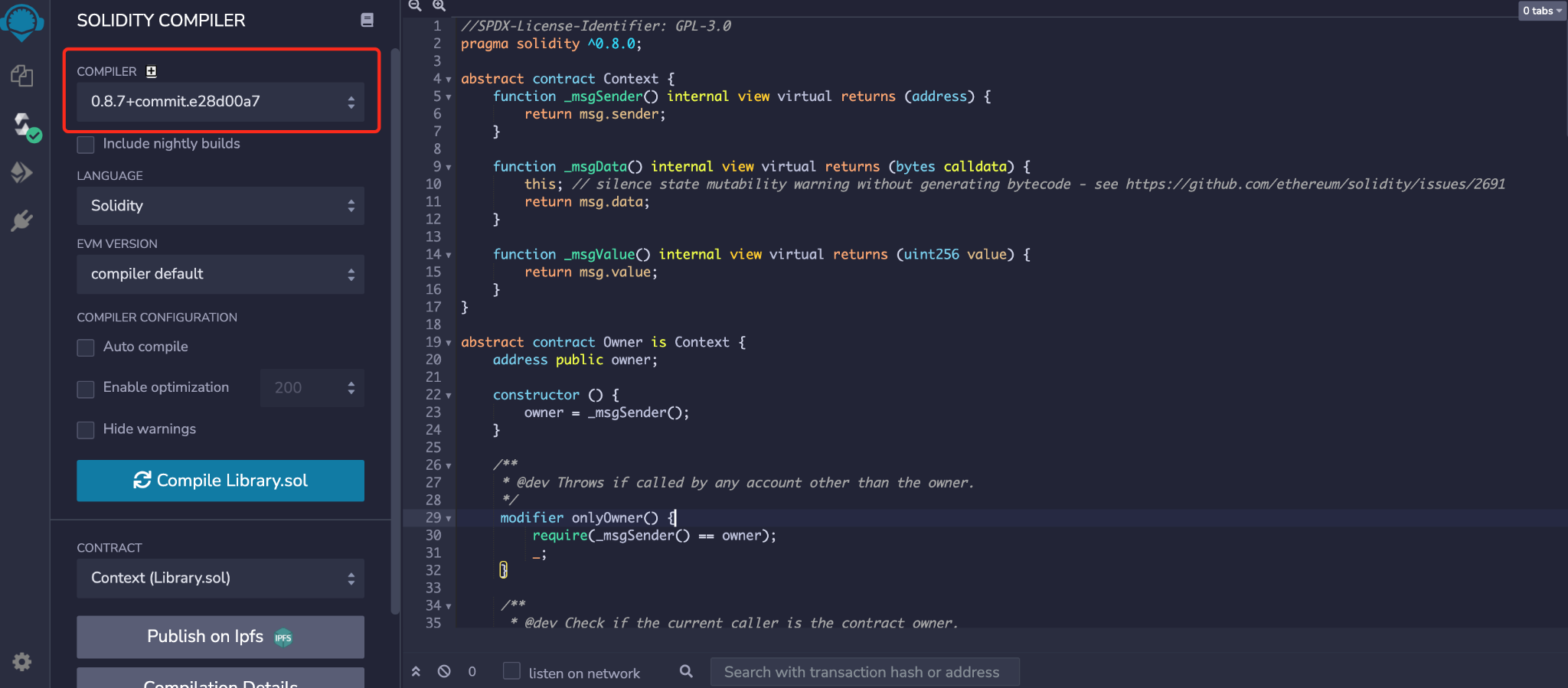
After clicking Deploy, MetaMask will pop up a transaction confirmation window
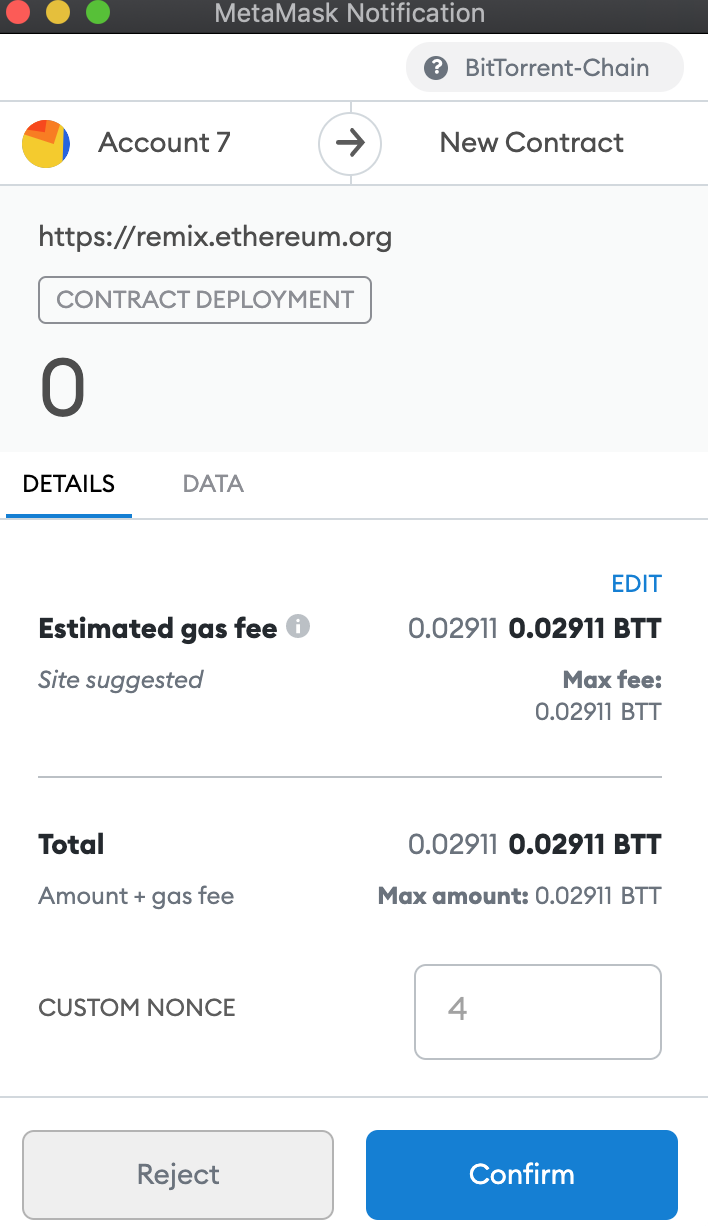
Congratulations! The Library contract has been successfully deployed to the BTTC testnet. Now you can interact with it and check its status on the explorer.
Build the DApp
To begin, copy the contract address that was previously deployed into the libraryContractAddress variable in utils.js.
Link the UI MetaMask
The following step is to link the UI to the MetaMask Chrome wallet. MetaMask injects the Web3 object into each browser page, allowing the DApp to communicate with the BTTC network.
Functions
After connecting our user interface to MetaMask, we need to analyze how the user interface interacts with smart contracts. As a result, a contract object must be created to represent the decentralized library smart contract.
Create the following code in dapp-ui/plugins/utils.js to retrieve the smart contract object and save it to the global variable. Then you can directly interact with the contract via the global variable.
export async function setLibraryContract() {
var MyContract = web3.eth.contract(LibraryABI);
bookRentContract = await MyContract.at('0xe7BBc13a279f11D313B2c8304CdcDfC856C7603C');
}The library should have three fundamental functions:
- Add a book
- Browse available books
- Borrow a book
In index.vue, call setLibraryContract() to initialize the contract object.
async mounted() {
// init contract object
await setLibraryContract();
// fetch all books
const books = await fetchAllBooks();
this.posts = books;
},Add a Book
To begin, construct an add book form for users to submit information about book rentals. On the back end, it will communicate with the library contract's addBook function.
Add the following code to dapp-ui/components/postAd() bookForm.vue's function:
postAd() {
postBookInfo(this.title,this.description,this.price);
}Add the following code to postBookInfo() of dapp-ui/plugins/utils.js:
const result = await bookRentContract.methods.addBook(name,description,price).send();Browse All Available Books
The fetchAllBooks() function returns the book list, which contains a list of all available books.
Add the following code to dapp-ui/plugins/fetchAllBooks() utils.js's function:
const books = [];
const bookId = await bookRentContract.methods.bookId().call();
//iterate from 0 till bookId
for (let i = 0; i < bookId; i++){
const book = await bookRentContract.methods.books(i).call()
if(book.name!="") // filter the deleted books
{
books.push(
{id: i,name: book.name,description: book.description,price: book.price}
)
}
}
return booksIn index.vue, call fetchAllBooks() to retrieve book information and show it on the homepage.
Borrow a Book
The user may borrow the book after viewing the book's information.
In the book() function of dapp-ui/components/detailsModal.vue, add the following code:
// get Start date
const startDay = this.getDayOfYear(this.startDate)
// get End date
const endDay = this.getDayOfYear(this.endDate)
// price calculation
const totalPrice =this.propData.price * (endDay - startDay)
// call metamask.bookProperty
borrowBook(this.propData.id, startDay, endDay, totalPrice)dapp-ui/plugins/utils.js, add the following code to the borrowBook() function:
const result = await bookRentContract.methods.borrowBook(spaceId,checkInDate,checkOutDate).send();The development of the library Dapp is done.
Run the DApp
Ascertain that MetaMask is logged in before running the following command to start the service:
npm run devTo view the front-end page, type localhost:3000 into the browser's address bar.

To post book rental information, click the "Rent Your Books" button in the upper right corner. The title of the book, a brief description of the book, and the cost of the book for one day are all included in the material.
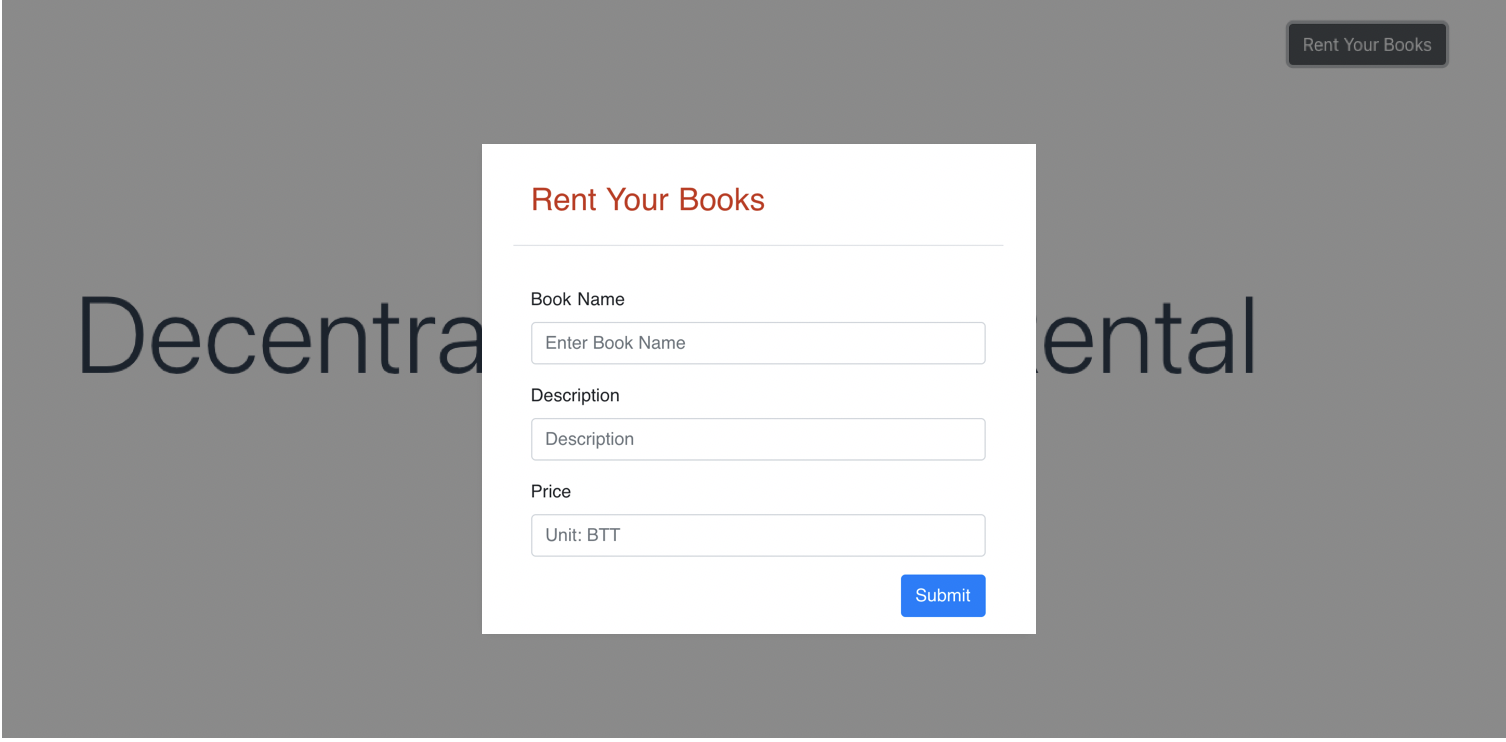
After you've completed the form, click the "Submit" button. The information will be passed to the library contract's addBook function, which will generate a transaction that triggers the contract. Then, as illustrated below, a MetaMask pop-up box will open, requesting confirmation and signature:
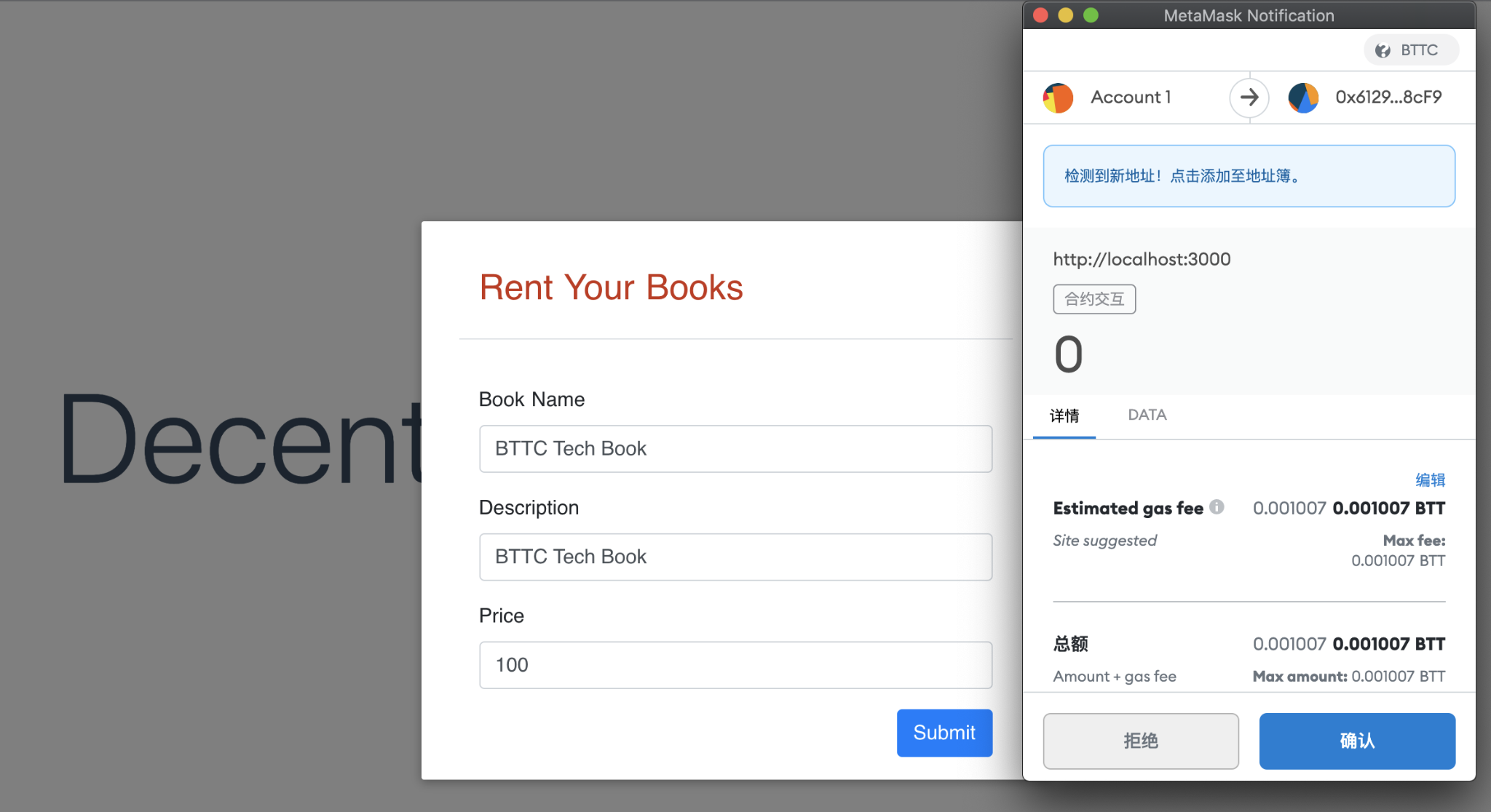
After successfully connecting the transaction to the chain, the following leasing information will be displayed on the page:
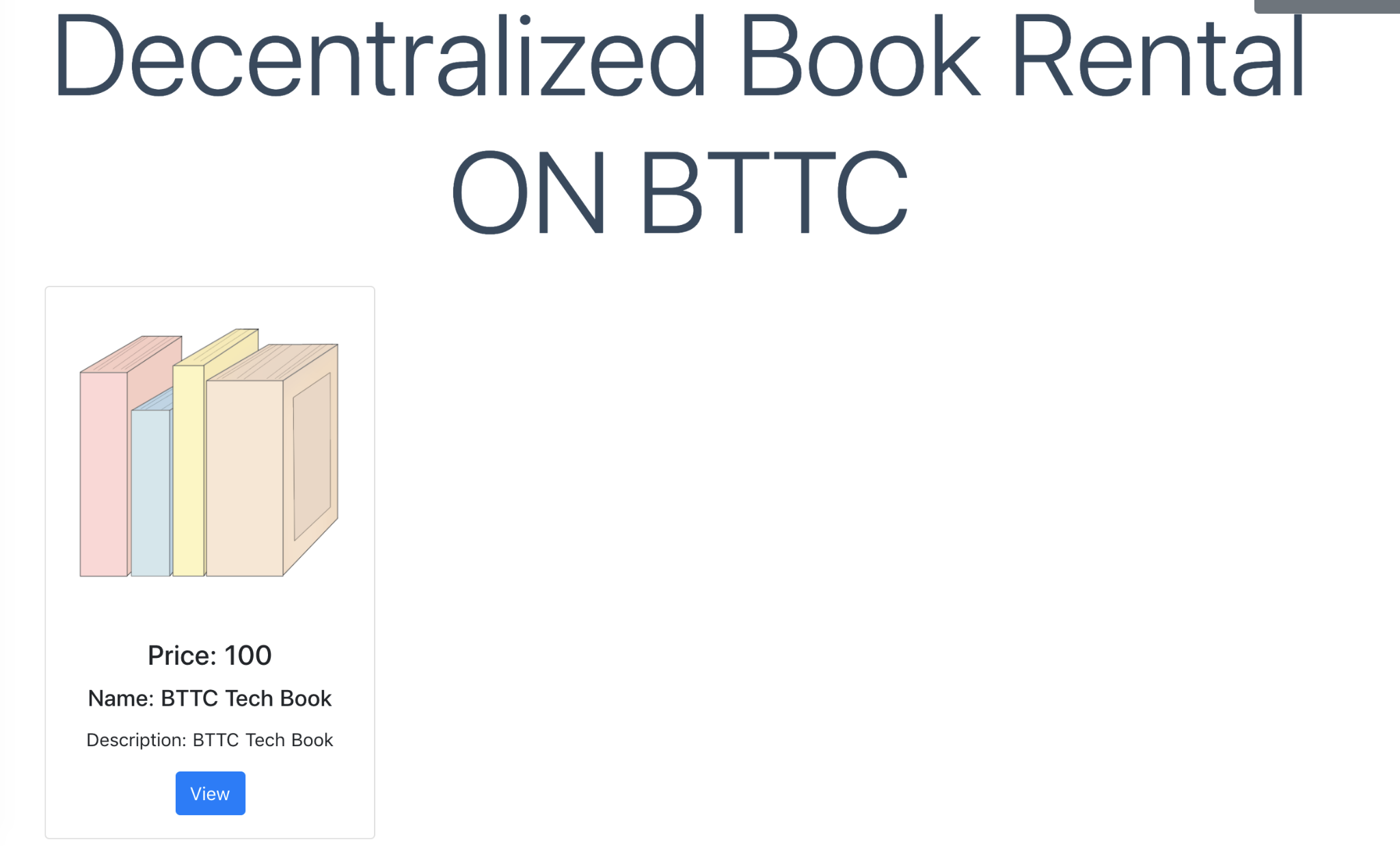
Click "View" to view the book's comprehensive details and to select the rental period. To initiate a lease request, click "Lent Now", then the library contract's borrowBook function will be called. Additionally, the leasing transaction must be signed and broadcasted to finish it.
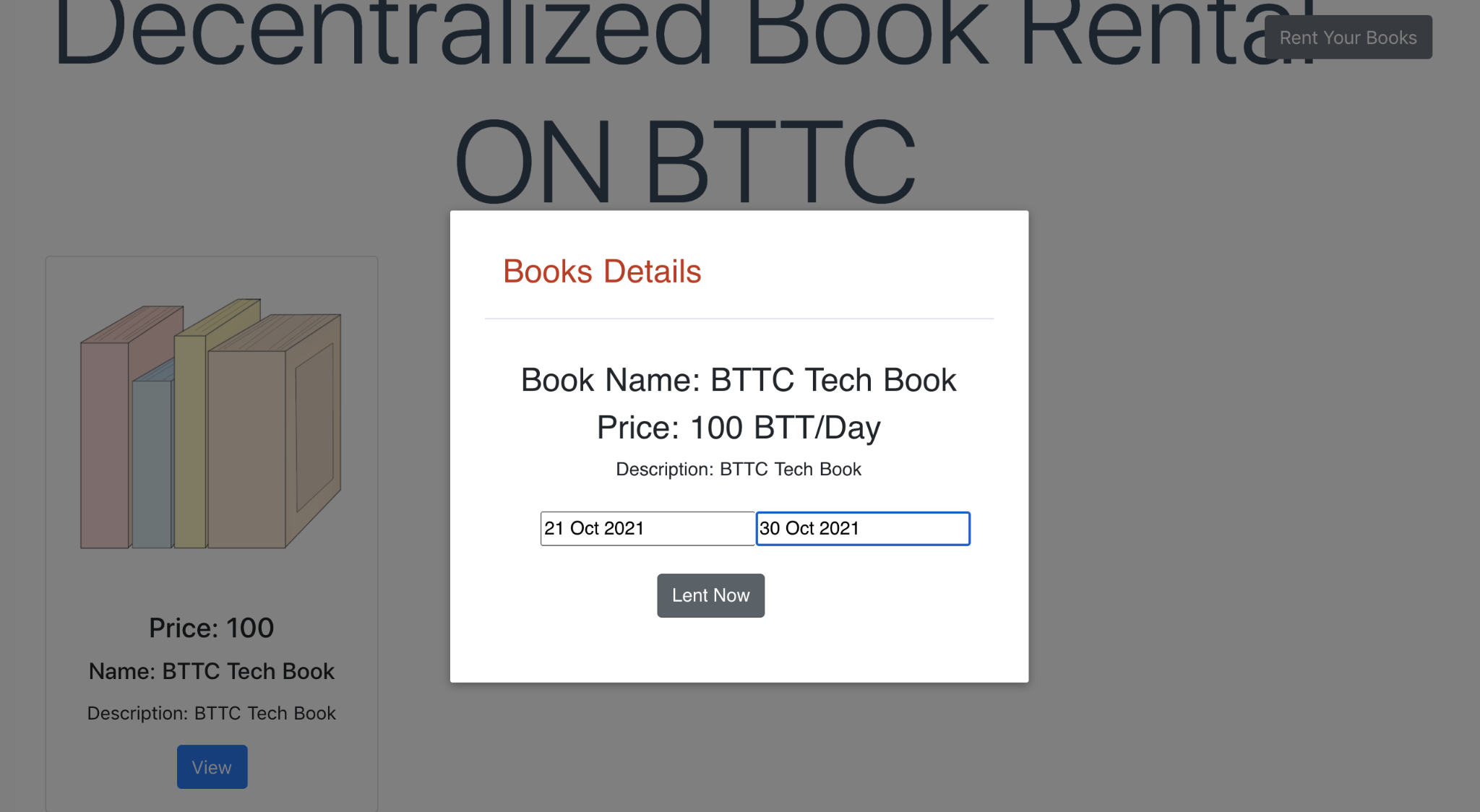
Updated 4 months ago